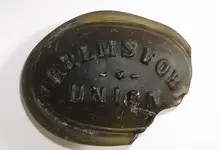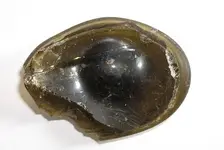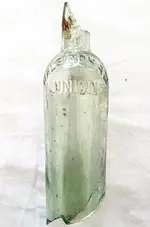You are using an out of date browser. It may not display this or other websites correctly.
You should upgrade or use an alternative browser.
You should upgrade or use an alternative browser.
part of a glass bottle i think but unsure ???
- Thread starter jimmy uk
- Start date
timekiller
Silver Member
- Joined
- Feb 10, 2009
- Messages
- 3,852
- Reaction score
- 964
- Golden Thread
- 1
- Location
- Morehead City / Newport NC
- 🥇 Banner finds
- 1
- Detector(s) used
- Minelab E-Trac
- Primary Interest:
- All Treasure Hunting
Upvote
0
Kenosha Kid
Sr. Member
Since you're in the UK, thought I'd note the Chelmsford Union history there :
http://webcache.googleusercontent.c...=15&hl=en&ct=clnk&gl=us&source=www.google.com
"Under the Poor Law of 1834, Chelmsford became part of the Chelmsford Union."
http://www.highbeam.com/doc/1P2-26824178.html
"Early records show that the St John's Hospital site in Wood Street, Chelmsford, was used as a barrack ground during the Napoleonic War until 1828. Chelmsford Union built a workhouse on the upper part of the barrack grounds in 1837. The land was cheap because it was on the edge of town."
http://www.historyhouse.co.uk/articles/workhouses.html
"Following the Poor Law Amendment Act of 1834, responsibility for the poor was removed from the individual parish. Groups of parishes were amalgamated into Poor Law Unions and an elected Board of Guardians were responsible for the Union Workhouse. Admission into a workhouse became the main way of dealing with the poor. A workhouse was run by a master or governor whose task was to supervise the inmates, cloth and feed them, and set them to work."
"Chelmsford Union
Union declared 10 August 1835
Boreham, Broomfield, Buttsbury, Chelmsford, Chignall St James, Chignall Smealy, Danbury, East Hanningfield, Fryerning, Great Baddow, Great Leighs, Great Waltham, Good Easter, Ingatestone, Little Baddow, Little Leighs, Little Waltham, Margaretting, Mashbury, Pleshey, Roxwell, Sandon, South Hanningfield, Springfield, Stock, West Hanningfield, Widford, Writtle."
http://en.wikipedia.org/wiki/Workhouse_Unions
"In 1930, under the Local Government Act 1929, the Poor Law Unions were finally abolished, with their responsibilities transferred to the county councils and county boroughs."
Your item could've been from a bottle (medicinal, or other) designated for that particular union. Since you are fom the UK and it may not have anything to do with Chelmsford, Mass? Just a guess ...
http://webcache.googleusercontent.c...=15&hl=en&ct=clnk&gl=us&source=www.google.com
"Under the Poor Law of 1834, Chelmsford became part of the Chelmsford Union."
http://www.highbeam.com/doc/1P2-26824178.html
"Early records show that the St John's Hospital site in Wood Street, Chelmsford, was used as a barrack ground during the Napoleonic War until 1828. Chelmsford Union built a workhouse on the upper part of the barrack grounds in 1837. The land was cheap because it was on the edge of town."
http://www.historyhouse.co.uk/articles/workhouses.html
"Following the Poor Law Amendment Act of 1834, responsibility for the poor was removed from the individual parish. Groups of parishes were amalgamated into Poor Law Unions and an elected Board of Guardians were responsible for the Union Workhouse. Admission into a workhouse became the main way of dealing with the poor. A workhouse was run by a master or governor whose task was to supervise the inmates, cloth and feed them, and set them to work."
"Chelmsford Union
Union declared 10 August 1835
Boreham, Broomfield, Buttsbury, Chelmsford, Chignall St James, Chignall Smealy, Danbury, East Hanningfield, Fryerning, Great Baddow, Great Leighs, Great Waltham, Good Easter, Ingatestone, Little Baddow, Little Leighs, Little Waltham, Margaretting, Mashbury, Pleshey, Roxwell, Sandon, South Hanningfield, Springfield, Stock, West Hanningfield, Widford, Writtle."
http://en.wikipedia.org/wiki/Workhouse_Unions
"In 1930, under the Local Government Act 1929, the Poor Law Unions were finally abolished, with their responsibilities transferred to the county councils and county boroughs."
Your item could've been from a bottle (medicinal, or other) designated for that particular union. Since you are fom the UK and it may not have anything to do with Chelmsford, Mass? Just a guess ...
Upvote
0
RickyD
Full Member
- Joined
- Jan 21, 2006
- Messages
- 117
- Reaction score
- 2
- Golden Thread
- 0
- Location
- Washington State
- Detector(s) used
- Garrett GTAX 550. Garrett Pro Pointer
And I would say, more than a good guess. Being a bottle hound from the continental america, I didn't see the geographical location of the find. 

Upvote
0
surf
Silver Member
- Joined
- Jan 10, 2013
- Messages
- 2,832
- Reaction score
- 1,458
- Golden Thread
- 0
- Detector(s) used
- seeing eye shovel
- Primary Interest:
- Other
Hello derek,
Welcome to TNet. Sealed early black glass bottles do indeed have value. Please put up some good photos of yours, and a story of how you found it.

"The former Chelmsford Union Workhouse" Essex Workhouses - Serving the Community for 600 Years - Essex Portal
Welcome to TNet. Sealed early black glass bottles do indeed have value. Please put up some good photos of yours, and a story of how you found it.

"The former Chelmsford Union Workhouse" Essex Workhouses - Serving the Community for 600 Years - Essex Portal
Upvote
0
surf
Silver Member
- Joined
- Jan 10, 2013
- Messages
- 2,832
- Reaction score
- 1,458
- Golden Thread
- 0
- Detector(s) used
- seeing eye shovel
- Primary Interest:
- Other
Cheers derek,
Definitely a bottle seal, yes. As to yours, it's difficult to comment on the unseen. I'm near plumb in the middle of North America, and know not a great deal about the arcane reaches of the UK bottle market, but would think it might be a good one.
I'd encourage you to post some good photos, and we'll all have a look.
"Items used in workhouses were often marked in order to discourage their theft. An interesting example of this is a bottle with "Walsingham Union" moulded into it, discovered in a "dig" in Norfolk. The picture below was kindly contributed by Jason Beck." The Workhouse in Walsingham, Norfolk
Definitely a bottle seal, yes. As to yours, it's difficult to comment on the unseen. I'm near plumb in the middle of North America, and know not a great deal about the arcane reaches of the UK bottle market, but would think it might be a good one.
I'd encourage you to post some good photos, and we'll all have a look.
"Items used in workhouses were often marked in order to discourage their theft. An interesting example of this is a bottle with "Walsingham Union" moulded into it, discovered in a "dig" in Norfolk. The picture below was kindly contributed by Jason Beck." The Workhouse in Walsingham, Norfolk
Upvote
0
Similar threads
- Question
🔎 UNIDENTIFIED
Unknown/ unidentified rock markings? help appreciated <3
- Replies
- 4
- Views
- 390
- Replies
- 12
- Views
- 492
- Replies
- 1
- Views
- 248
Users who are viewing this thread
Total: 1 (members: 0, guests: 1)




![fig1lg[1].webp](/data/attachments/489/489222-a84c2321b9e1152eef17f1421a76de39.jpg?hash=lxsHr22gmO)

